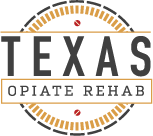
What Happens in Residential Detox?
While rehab programs may have many stages of care, from inpatient to 12-step meetings just a mile or two from home, residential programs rely on patients living in a rehab facility for a specific amount of time. Programs generally start with medically assisted detox, physical monitoring, and other support to address health concerns related to substance abuse. Residential facilities may be single-gender, faith-based, or have another niche focus. Programs generally include some of the following:
- Daily structured activities and free time. Structure is key in rehab programs, helping residents build health patterns and habits.
- Group, individual, and family therapy. Usually, at least twice a day, residents engage in different types of therapy to address addiction, trauma, and their connection.
- Other modalities. Some programs include cognitive behavioral therapy, hypnosis, and EMDR to help rewire the brain.
- Some facilities use art, music, dance, or animal-assisted therapies like horseback riding to provide holistic healing and stress-relieving hobbies.
- Health counseling. Many programs address nutrition, mindfulness, meditation, and other healthy habits to build into resident’s routines.
- Outpatient programs. Residential detox programs often assist residents in finding other programs that help them transition back into home life when their residency ends.
The key to residential rehab is removing temptation and helping residents build healthy habits through structured time. By practicing a daily structure, healthy eating, exercise, and addressing emotional components of addiction, residential rehab offers the reset many need to break the cycle of addiction in their lives. Residential rehab can also offer the space loved ones need to process the effects of addiction and address their own needs. While recovery is a solo journey, all aspects of addiction weigh on an addict’s family, friends, and support systems.
Where Can I Find Residential Detox Centers in Texas?
Searching for residential detox centers in Texas can be a crucial step towards achieving sobriety and improved well-being. Texas offers a variety of options for individuals seeking professional help to overcome substance abuse and addiction. From the bustling cities of Houston and Dallas to the serene landscapes of Hill Country, you can find residential detox facilities that cater to a wide range of needs and preferences. These centers provide a safe and supportive environment for individuals to undergo the initial stages of detoxification, where they can receive medical supervision, therapy, and counseling to manage withdrawal symptoms and address the root causes of their addiction. Whether you’re looking for a tranquil retreat or a facility in a more urban setting, Texas offers a diverse array of residential detox options to help individuals on their path to recovery.
Start Recovery Today And Find The Support You Need
Our culture often associates addiction and residential rehab with shame and failure. Know that millions of people worldwide struggle with addiction each day, and seeking residential treatment is a sign of bravery, not failure. Detox is the first step in recovery after asking for help. It can be incredibly difficult for many of us to admit addiction to loved ones or ask for recovery support. Looking for programs can be overwhelming, but know that there are support systems available right here in Houston. Don’t put off detox and recovery. Get the help you and your family need today.
